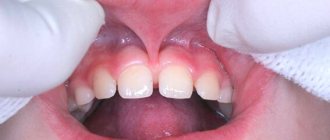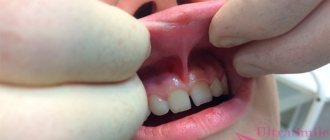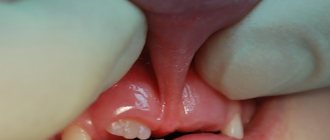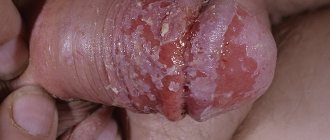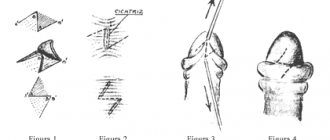Types of pathologies
Indications for surgery, ways to solve the problem
When should the procedure be performed?
Contraindications for dental surgery
Frenuloplasty: ways to eliminate defects
Rehabilitation in the postoperative period
The frenulum of the tongue and lips are natural folds of the mucous membranes of the oral cavity. The aesthetics of a smile, good diction, and correct bite depend on these invisible components. In case of pathological changes in the frenulum, in some cases it is impossible to do without frenuloplasty - a surgical operation to correct dental defects.
- Types of pathologies
- Indications
- Plastic frenulum of the tongue
- Upper lip frenuloplasty
- Plastic surgery of the frenulum of the lower lip
- When should it be done?
- Contraindications
- Frenuloplasty: ways to eliminate defects
- Surgical method
- Laser plastic surgery
- Rehabilitation in the postoperative period
What is labial frenuloplasty?
The labial frenulum is a fold of mucous membrane that connects the lip and gum. Plastic surgery of the frenulum of the upper and lower lips is done to eliminate pathologies that can have unpleasant consequences in the form of impaired diction and the formation of malocclusion. This operation itself is very simple and has minimal contraindications. It is done if the frenulum is too short or too wide, which affects the position of the teeth and the condition of the gums. For example, due to a wide frenulum, a diastema may appear - a gap between the central incisors. In this case, either surgery using the classical method or laser plastic surgery of the upper lip frenulum will help.
Sometimes plastic surgery is performed on the frenulum of the tongue - the membrane connecting the lower part of the tongue and the mucous membrane of the lower jaw. In children, surgery promotes the correct formation of the bite and prevents speech defects; in adults, it is a necessary measure for effective prosthetics with a removable structure or implantation. Read more about tongue frenuloplasty here.
Types of pathologies
Frenules of the mucous membrane in the oral cavity are thin folds formed for additional fixation of the lip or tongue to the jaw. When formed correctly, they do not cause problems, but sometimes abnormal changes occur that require surgical intervention.
Main deviations from the norm:
- short bridle:
- offset from the center of the tongue and gums;
- forked;
- close attached to the jaw.
During the growth of a child, pathologies can negatively affect the structure of the dentition, the formation of the bite, and provoke a violation of natural facial expressions.
Consequences of frenulum anomalies:
- gap between incisors;
- the appearance of pronounced speech defects;
- diseases of the gums, periodontal disease, manifestations of hypersensitivity of the oral mucosa and teeth;
- a change in the bite, which will be more difficult to correct in the future.
An abnormality in the structure of the oral cavity can be easily corrected with timely treatment.
What are the differences between upper and lower lip frenuloplasty?
Although the operations themselves to correct pathology on the upper and lower lips are similar, they require a different approach to rehabilitation. After plastic surgery of the lower lip frenulum, the wound takes longer to heal, about two weeks, while plastic surgery of the upper lip frenulum requires only a few days to recover. In the first case, anti-inflammatory therapy is often prescribed to prevent complications.
Contraindications for children
Sometimes lip frenuloplasty is considered impossible. The operation is contraindicated if the following factors are identified:
- patient's age;
- blood clotting disorder;
- deviations in mental development;
- infectious diseases in the acute stage;
- oncological pathologies and acute radiation sickness;
- susceptibility to keloid formation;
- complicated caries.
Restrictions also apply to people suffering from cardiovascular diseases.
When is lip frenuloplasty required?
The pathology of the labial frenulum does not always indicate that the patient requires surgery. Sometimes it is minor and does not cause any particular inconvenience. As a rule, surgery is necessary in the following cases.
- Diastema.
The excess gap between the central incisors tends to widen, causing the teeth to move forward and move apart in different directions. Also, constant stress on the gums leads to periodontitis. - Orthodontic treatment.
Correcting the bite with braces requires that the frenulum be of the correct shape and have an anatomical location. Therefore, before starting treatment, the orthodontist often sends the patient for plastic surgery. - Periodontal diseases.
A short frenulum can expose the roots of the teeth. - Complete prosthetics.
A short frenulum does not allow a removable denture to be firmly and securely fastened. This is one of the most common cases when plastic surgery of the lower lip frenulum is performed in adults.
Photo of a short frenulum of the upper lip in a child.
There are other possible reasons for the development of shortening.
Classification
There are two types of violation. They are divided according to the thickness of the formation.
The following varieties are distinguished:
- The first one is characterized by a short, triangular-shaped, powerful frenulum (width more than 3 mm). Its lower edge ends at the interincisal papilla. In the thickness of the formation, a pronounced cord of connective tissue is determined, which is fixed to the jaw bone. Often this anomaly is facilitated by the development of a wide diastema.
- The second type is represented by a shortened, thin bridle. It is transparent and looks like a duplicate of the mucous membrane. The formation is located between the front incisors, attached to the crest of the alveolar process. This option is characterized by low attachment. With it, a narrow diastema is formed.
The tactics of surgical intervention depend on the type of shortening.
Is it necessary to perform labial frenuloplasty in children?
Pathology of the labial frenulum in a child can lead to many unpleasant consequences, both medical and aesthetic. Therefore, if a specialist recommends plastic surgery, you should definitely take his advice. In children, this anomaly can cause the following problems:
- The upper lip in newborns is actively involved in the sucking process along with the tongue, therefore, if the frenulum is shortened, the child will not be able to feed normally;
- A frenulum of the upper lip that is too short does not allow the correct pronunciation of labial sounds and some vowels, as a result of which the child will experience difficulties with diction;
- Frenum defects are directly related to malocclusion and chewing functions. Thus, there is a risk of digestive problems.
According to doctors, it is best to perform plastic surgery of the upper lip frenulum in children aged 5 to 8 years (the indications for surgery on the lower lip are identical). At this time, the child’s baby teeth are replaced by permanent teeth, and it is important that this process proceeds correctly. However, if necessary, plastic surgery of the upper lip frenulum can be performed in adults or adolescents. As for newborns, it is recommended that they undergo surgery only in case of serious nutritional disturbances.
Dentists on Rimskaya
Konstantinov Oleg Nikolaevich
Dental surgeon
Experience: 25 years
★ Virtuoso of painless treatment. Patients fall asleep in the doctor's chair
Samadov Ruslan Davudovich
Orthopedic dentist, implant surgeon
Experience: 16 years
★ International level doctor with experience in a republican dental clinic
Trokhalin Andrey Vyacheslavovich
Oral and maxillofacial surgeon, orthopedic dentist
Experience: 8 years
★ Skillful application of deep practical knowledge in practice leads in 100% of cases to excellent treatment results
Methods of lip frenuloplasty
There are three main methods of lip frenuloplasty: frenotomy, frenectomy and frenuloplasty. The choice of technique depends on the characteristics of the pathology.
- Frenotomy is a dissection of the frenulum. It is performed when the process is too narrow and is not attached to the edge of the alveolar ridge. The frenulum is cut transversely.
- Frenectomy - excision of the frenulum. This method is used for excess soft tissue width, with the incision along the ridge.
- Frenuloplasty - relocation of the frenulum attachment site.
In all three cases, self-absorbable threads are used to suture wounds. The operation usually lasts about 15 minutes and is painless using local anesthesia.
Recently, laser lip frenuloplasty has become widespread. This operation is more expensive, but easier to tolerate. A focused laser beam removes excess tissue while sealing the edges of the wound. This means that there is no need for stitches, the operation is completely bloodless, and recovery takes less time. Laser plastic surgery of the upper lip frenulum in children is preferable to the classical technique, since it is performed with less trauma. Of course, we also recommend giving preference to laser frenuloplasty of the upper lip in adults.
How does the procedure work?
The form and duration of the operation to correct the lip frenulum directly depends on its type. Surgery using a scalpel or laser lasts about 10 minutes. The child must sit still in a chair until the operation is completed. During the procedure, the dental surgeon makes the necessary incision or resection. Then he puts stitches.
Plastic surgery using a laser does not require additional antibacterial treatment - the frenulum is sealed, which eliminates the further development of infection. This procedure lasts less than 10 minutes and is completely bloodless.
Before plastic surgery, the mucosal area is numbed with a special anesthetic gel.
Minor discomfort may occur for several hours after surgery. In the next few days, it is necessary to maintain careful hygiene and avoid eating hard and hot foods so as not to irritate the frenulum. The rehabilitation period is aimed at ensuring that the frenulum heals faster.
Post-operative care
The rehabilitation period takes one to two weeks. To avoid complications, you must follow your doctor's recommendations:
- monitor the hygiene of the oral mucosa and perform procedures prescribed by a specialist;
- exclude hot, sour and solid foods;
- undergo a follow-up examination with the surgeon who performed the operation;
- do gymnastics to strengthen the chewing muscles.
The above rules will help you return to your normal lifestyle in a short time and prevent deterioration in your health after lip frenuloplasty.
Contraindications for dental surgery
The main contraindications to the procedure are:
intolerance to individual components required during treatment;
- allergic reactions to drugs;
- infectious diseases;
- blood diseases;
- oncology;
- HIV;
- exacerbation of chronic diseases;
- inflammation of the oral mucosa;
- diseases of teeth and gums: pulpitis, caries, periodontitis and paradontosis.
After consultation and examination, the specialist makes a decision on the impossibility of performing the operation or postpones it until the reasons preventing the surgical intervention are eliminated.
How much does lip frenuloplasty cost?
The price for lip frenuloplasty usually starts at 3,000 rubles and reaches 5,000 - 6,000 rubles. In this case, there is usually no difference whether we are talking about the price of plastic surgery of the frenulum of the upper lip or the lower lip. Plastic surgery of the frenulum of the upper lip with a laser is more expensive and can cost from 3,500 to 8,000 rubles. Traditionally, the cost of the operation already includes anesthesia, but this must be clarified in advance. Parents often ask how much it costs to have upper lip frenuloplasty in children. Typically, the costs for this procedure are no different from those for surgery in adults.
Laser plastic surgery
Laser has become an innovative method in modern medicine. With his participation, the procedure will not last even 5 minutes. Laser plastic surgery, like conventional plastic surgery, also involves primary sanitation and, if necessary, treatment.
Laser frenuloplasty is performed under local anesthesia. In this case, nothing is required for preparation except a special gel. The attending physician directs a laser beam at the source, under the influence of which the cord is cut. The advantage of this method is that the same beam carries out parallel work on disinfecting and sealing the edges of the wound.
Why are clients increasingly choosing laser surgery? This is easily explained by the fact that there is no blood loss, no stitches are required, no pain or scarring. This type of operation will allow you not to change your usual lifestyle.
